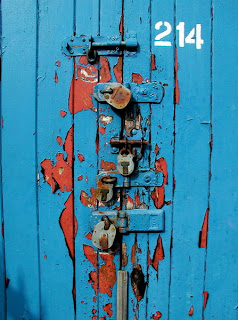Though Germany is one of the few places not wholly under the patronage of Saint George and Germany has another event to mark on this day—the anniversary of the enactment of the Reinheitsgebot, the Saint Day has universal recognition and usually falls (the feast can be preempted by Easter) on a strange amalgam of celebrations that are as varied and involved as his cult and veneration. Aside from beer, literature is also synthetically celebrated on this day, due to it being the anniversary of Miguel de Cervantes’ death and the anniversary of both William Shakespeare’s birth and death (though this coincidence is a bit contrived because of subsequent calendar reforms)—books are a traditional St. George’s Day gift.
 For Saint George himself, festivities can range from the civic to national to professional observances for the many places and vocations (including blacksmiths, butchers, farmers, miners and beer-barrel makers) he covers. The historical personage was an accomplished and respected leader of the imperial guard in Roman Palestine, and although a favourite of the Emperor, was martyred for making a spectacle of his refusal to recognize the pagan household gods. Apparently, his faith inspired a revolt among the people and military ranks, overturning the ban against Christianity. Where the bit about the dragon comes in is not so clear. I always felt kind of sorry for the dragon, but it was more than just a nuisance, demanding livestock- or maiden-sacrifices from villagers in exchange for access to their oasis and water supply. Then, instead of taking the act, George slaying the dragon (symbolizing Rome, perhaps) to save the life of the chieftain’s daughter who drew the bad lot after all the sheep and goats had been devoured, as a fait accompli, I prefer to think of it as a continuous battle, a tumbling and constant struggle like the eternal standoffs seen in the constellations.
For Saint George himself, festivities can range from the civic to national to professional observances for the many places and vocations (including blacksmiths, butchers, farmers, miners and beer-barrel makers) he covers. The historical personage was an accomplished and respected leader of the imperial guard in Roman Palestine, and although a favourite of the Emperor, was martyred for making a spectacle of his refusal to recognize the pagan household gods. Apparently, his faith inspired a revolt among the people and military ranks, overturning the ban against Christianity. Where the bit about the dragon comes in is not so clear. I always felt kind of sorry for the dragon, but it was more than just a nuisance, demanding livestock- or maiden-sacrifices from villagers in exchange for access to their oasis and water supply. Then, instead of taking the act, George slaying the dragon (symbolizing Rome, perhaps) to save the life of the chieftain’s daughter who drew the bad lot after all the sheep and goats had been devoured, as a fait accompli, I prefer to think of it as a continuous battle, a tumbling and constant struggle like the eternal standoffs seen in the constellations. 














